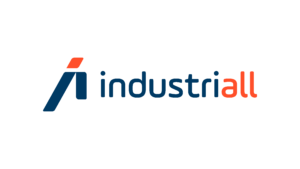Preventing risks in industrial coke manufacturing using IA
In the steel industry, one of the processes involved in steel production is coking. In this step, an appropriate mixture of coal is poured into ovens and heated to a high temperature, without the presence of oxygen. As a result, industrial coke is produced that will be used in the production process.
Without coke, it is not possible to reduce the iron ore to produce pig iron in the blast furnace stage. In addition, the gas generated in coke manufacturing is used in other steel and thermoelectric processes as a source of heat.
Therefore, it is possible to see that the coke plant is of great importance for the steel industry.
What is industrial coke used for?
Coke is a material that supplies the heat needed to melt metallic products. This is, therefore, used for the production of pig iron, from its reduction. But it is also useful for melting other metallic components.
To manufacture the industrial coke, the process called coking takes place. It consists of placing the coal inside furnaces. Then heat at a high temperature without air for long periods of time. And finally, when the coal is transformed into coke, it is possible to extract the product from the transformation.
When coked, the coke obtained inside the ovens is pushed by a stripping machine, powered by electricity. This equipment works like a plunger, carrying all the coke out of the oven.
Stickers: a problem in the industrial coke removal process
Although the steel industry’s production process is well structured and organized, problems can occur during the coke removal stage. One of them is the sticker problem, which prevents the coke from being removed from the oven.
This cage can have implications and cause several problems such as human risk, operational risk, financial losses, among others.
One of the factors that can colaborate to these situations, are for example, problems in the oven walls, which can be concave or convex. This can interfere with the plunger action process. If the time to remove the coke from the oven is not ideal, the coke can “stick/fix” to the oven walls, impairing the action of the plunger and leading to a sticker issue.
When this problem happens, there is a lot of energy spent by the plunger. In addition, the electrical current in the stripping machine can exceed 300 amps, and leaving the machine on for too long can destroy the oven.
All of this can result in major problems for the coke plant. After all, this damage results in a production stoppage for maintenance, which can impact production and end up compromising the life of the employee who will carry out the maintenance, due to the high risk involved.
The main negative consequences of having stickers problems are:
- Electric stress of the stripping machine (MD);
- Mechanical stress of the oven walls;
- Exposure of the employee to remove the coke;
- Production stop for oven maintenance;
- Return of production compromised.
Artificial Intelligence in the steel industry
Artificial Intelligence (AI) can be used in the steel industry in order to predict problems in the production process. Thus, reducing unnecessary stops and increasing industry productivity.
As a pillar of innovation in the steel industry, Artificial Intelligence is able to provide a more comprehensive understanding of the production process, always based on data.
Considering this data, it is possible to predict and automate tasks with high complexity or risks for employees. Thus, past data is used intelligently and strategically to predict the future.
As a result, when using AI in factories, companies become more competitive as they manage to get ahead of the problems that may arise. For example, the sticker problem that takes place in the coke plant, which can be very harmful to the steel industry.
How to use Artificial Intelligence to prevent stickers in coke oven process.
Through Artificial Intelligence, IndustriALL’s solution uses past data to predict in a timely manner when an unwanted event occurs. Examples are high currents and/or the sticker issue that can occur at the end of a coking cycle. In this way, helping managers and operators in decision making.
It also allows that in case the riser tube temperature sensor goes offline, monitoring of this variable continues to happen through softsensors.
Thanks to these actions, it is possible to predict stickers and operate in order to end occurrences, reduce production stoppages and avoid human risk.
How stickers prevention helps the steel industry
When Artificial Intelligence is used strategically to prevent coking at the coke plant, several benefits are observed.
First, it is possible to mention the reduction of human risks. Since the inspection of a blast furnace in which there was a cage is a very risky task for the employee. Then, operational risks are also reduced, after all, Artificial Intelligence allows an automated evaluation of the data in real-time.
In addition to these benefits, AI enables faster decision-making, resulting in more time to carry out operational maneuvers in the coke oven.
As a result of all the benefits mentioned here, the industry also sees cost reductions.
The importance of digitization in industries
Industries increasingly need to have technological resources such as Artificial Intelligence to remain competitive in the market. The digitization of the steel industry is, in this sense, necessary for productivity to grow and better indicators to be achieved.
Technologies like these involves the construction of algorithms using Machine Learning that are capable of identifying, signaling, and predicting, in real-time, the sticker phenomenon.
In this way, this type of solution contributes to the steel industry and allows stickers to be no longer a challenge, but something possible to control.
← Voltar para o blog
